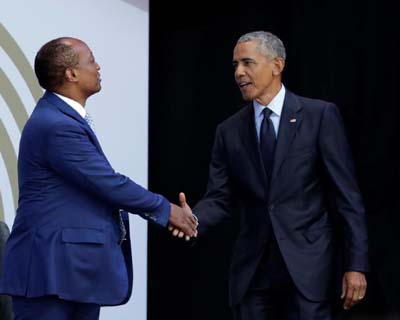
Mining billionaire FIFA’s chosen man to run African soccer
Gerald Imray
Cape Town: He’s made speeches alongside Barack Obama and attended business meetings with Donald Trump. He once gave $200,000 to Nelson Mandela as a birthday present. He built a fortune in gold mining and was the first Black African to be listed as a billionaire by Forbes.
Patrice Motsepe doesn’t cut the traditional figure of a soccer administrator, but he’ll be a FIFA vice president.
The South African is set to be anointed the new African soccer president in an election that now has no other candidates after FIFA exerted influence to ensure its chosen man leads an important but dysfunctional confederation.
Motsepe is a club owner with no regional or even national experience in soccer administration. But he rose rapidly from being a surprise candidate in November to the president-in-waiting with help from FIFA president Gianni Infantino and his aides.
They brokered a deal where all three other candidates agreed to withdraw from the election for head of the Confederation of African Football, reportedly in return for senior roles under Motsepe.
The deal was sold by FIFA as one that ensures “unity” after former CAF president Ahmad Ahmad was banned for financial misconduct after presiding over three years that teetered on chaos.
Motsepe will be president but work with his former election opponents as “a team,” according to FIFA.
“I am delighted that FIFA has been able to contribute, even if just a little, to this crucial moment,” Infantino said at a soccer conference last weekend in Mauritania where the deal was sealed and made public.
Then, Infantino stood smiling alongside Motsepe and the other former candidates — Augustin Senghor of Senegal, Ahmed Yahya of Mauritania and Jacques Anouma of Ivory Coast.
As president of CAF, Motsepe will automatically become a vice president of FIFA.
The three others are all high-profile officials in African soccer, with Senghor and Yahya members of the CAF executive committee and Anouma an ex-member of the FIFA executive committee.
But they were passed over by FIFA in favor of one of the continent’s most successful businessmen. In 2008, Motsepe was the first Black African billionaire on Forbes’ list and is now Africa’s ninth-richest person.
The 59-year-old Motsepe has a reputation for being media-shy and preferring to operate under the radar, but he has a strong international profile nonetheless.
He appeared at an exclusive meeting of top business leaders at the World Economic Forum in Davos in January last year, when he sat next to Infantino and two seats away from then-U.S. President Trump. Motsepe was the first businessman Trump introduced when he went round the table.
The meeting also represented a rare PR blip for Motsepe, when he told Trump “Africa loves you.” He later apologized for presuming to talk for all of Africa.
Motsepe built his $2.9 billion fortune after buying gold mines in South Africa in the 1990s under Black economic empowerment policies. He is also the brother-in-law of South African President Cyril Ramaphosa.
His ownership of Pretoria-based club Mamelodi Sundowns has driven it to new heights. But it’s his track record in business that was likely more pertinent for FIFA, with CAF in deep financial and reputational trouble after Ahmad.
Motsepe has recounted his earliest exposure to business, when he was put to use in his father’s small shop at the age of 5 selling food and drinks to miners.
“My father used to say that the family made a lot more money when I worked behind the counter,” he said in a 2012 interview.
Infantino’s push for Motsepe to become CAF president has raised questions over FIFA’s involvement in what’s African soccer business, but it’s not the first time the head of the world body has identified the big confederation — with 54 FIFA members — as tactically important.
Infantino was seen as operating behind the scenes in support of Ahmad’s successful campaign to unseat longtime CAF head Issa Hayatou in 2017. That didn’t work out well, with Ahmad banned from soccer for five years last year.
An appeal saw the ban reduced to two years this week but still prevented Ahmad standing for re-election in Rabat, Morocco on Friday. That removed the last obstacle to Motsepe’s ascent.
